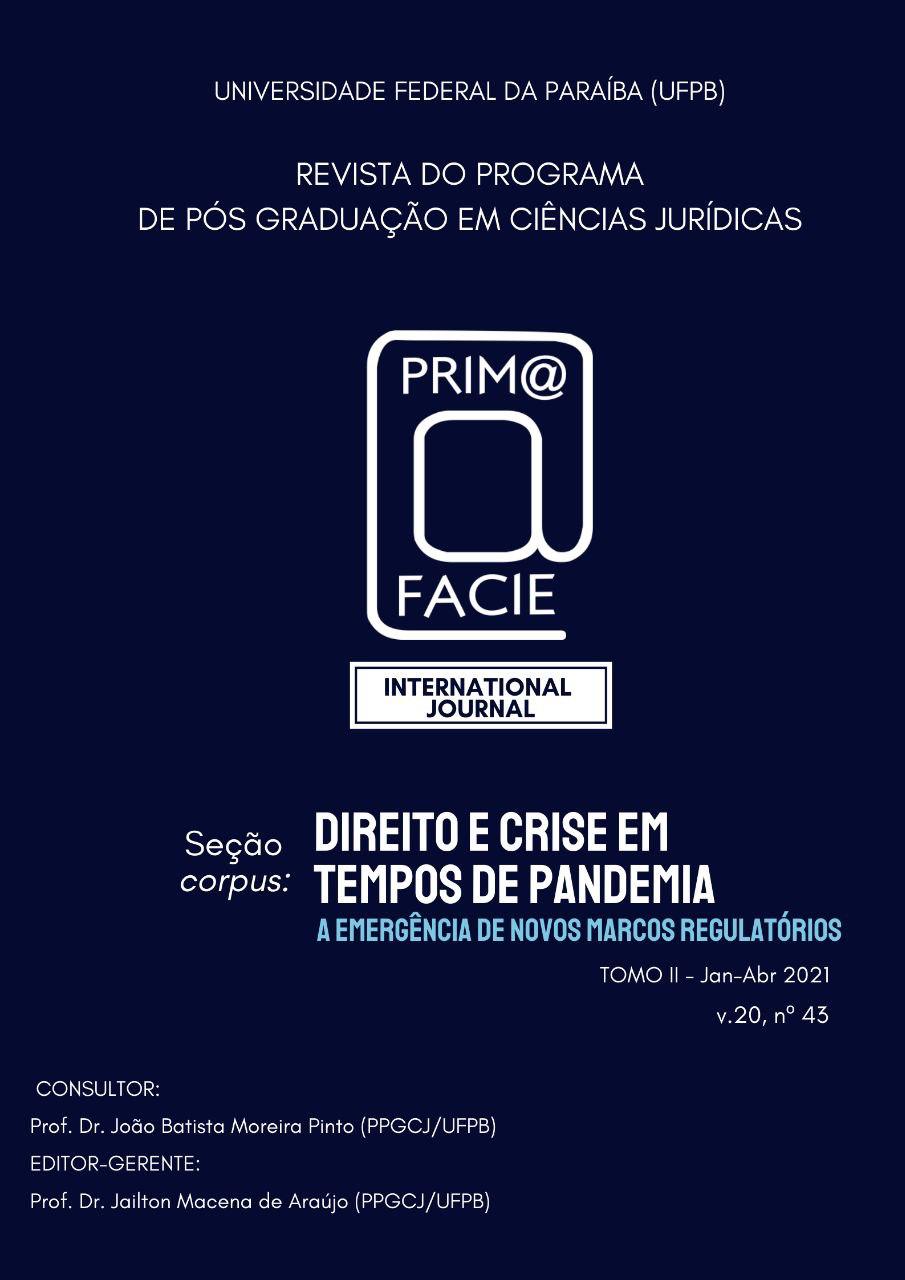Alternative Dispute Resolution In Pandemic Times: The Crisis As A Catalyst Agent For A Change Of Paradigm
DOI:
https://doi.org/10.22478/ufpb.1678-2593.2021v20n43.54234Keywords:
Access to justice. Conciliation. Mediation. Alternative dispute resolution. Pandemic.Abstract
This article aims to study the alternative dispute resolution during the COVID-19 pandemic. The objective is to ascertain if the increase in the use of alternative dispute resolution – due to the burden imposed on the Judiciary by the increase in the number of cases – may contribute to a change in the legal paradigm of dispute resolution in Brazil, overcoming the traditional adversarial model and fostering consensus as the foundation of a culture of effective social pacification. The research problem is: can the crisis resulting from the COVID-19 pandemic accelerate the pace of a paradigm change in the Brazilian dispute resolution model? The method of approach adopted is the deductive, and the method of procedure used is the monographic. The hypothesis answers the research problem in the affirmative way. The conclusion is that the crisis resulting from the increase in the number of litigations and judicial delays generates an increasing use of alternative dispute resolution and, as a result, may contribute to a transformation in the legal paradigm of conflict management.
Downloads
Downloads
Published
How to Cite
Issue
Section
License
Copyright (c) 2021 A Prim@ Facie detém direitos exclusivos de publicação e distribuição sob concessão absolutamente franca da parte do autor, ou autores.

This work is licensed under a Creative Commons Attribution-NonCommercial-NoDerivatives 4.0 International License.
Os autores estão cientes de que transferem seus direitos de publicação e distribuição à revista Prima Facie. Os autores autorizam o uso do trabalho para fins não-comerciais, incluindo direito de enviar o trabalho em bases de dados de Acesso Livre. As provas finais poderão não ser enviadas aos autores antes da publicação, seguindo a revista seu padrão técnico explicitado nas suas normas e nos formatos praticados em acordo com a CAPES e com padrões de excelência adotados. As opiniões emitidas pelos autores são de sua exclusiva responsabilidade não sendo a revista solidária da livre opinião exposta por eles.

